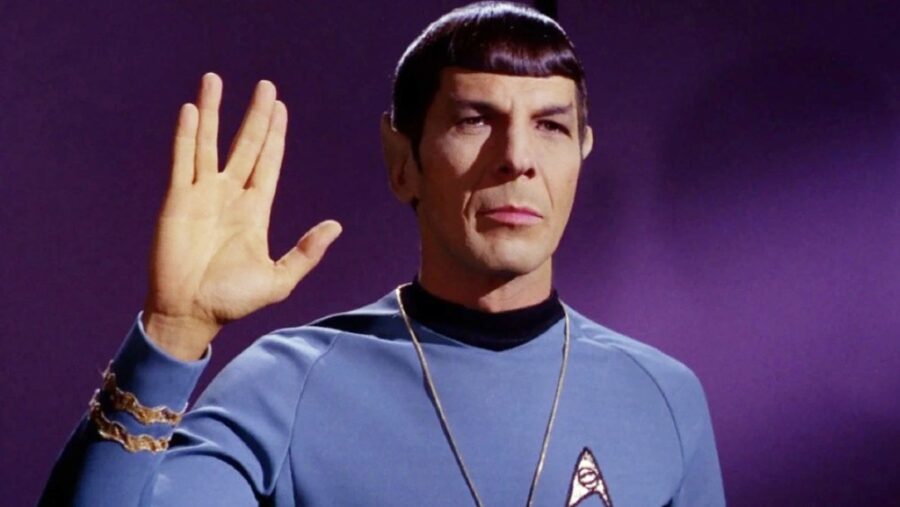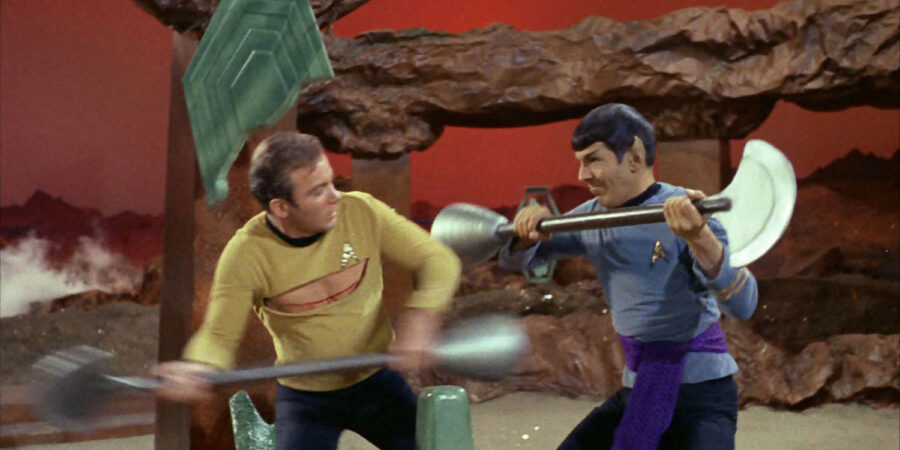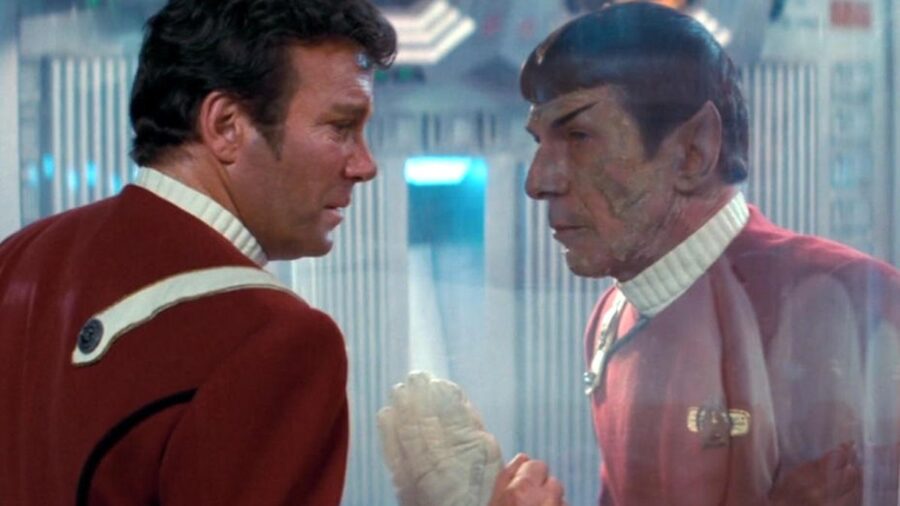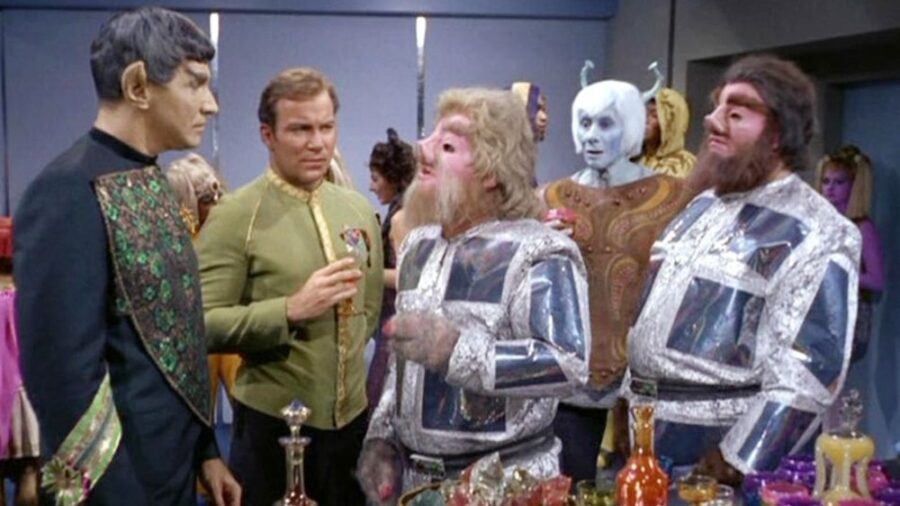Vulcans: Star Trek’s Green-Blooded, Pointy-Eared Federation Mainstays Explained

As the most recognizable alien species in Star Trek, Vulcans have a complex history, culture, physiology, and spirituality. Far more than pointed ears and a proclivity for mathematics and sciences, the Vulcans play an important role in the future history of Earth and of the United Federation of Planets. Here’s everything you need to know about a species people seem to always find fascinating.
The single most popular character in all of Star Trek from its inception has been the half-human, half alien Spock. His people, the Vulcans (also called Vulcanians) from the planet Vulcan, have been a through-line in the franchise that continues into iterations such as Star Trek: Discovery and Star Trek: Strange New Worlds, both of which feature Spock himself.

But the strange ways and mystical leanings of the Vulcan race are often misunderstood, beginning with their most well-known principle: Logic.
Though many perceive Star Trek’s Vulcans to be devoid of emotion, the truth is that their capacity for it is so strong that it used to rule their society. For centuries, Vulcans were engaged in wars that arose from unchecked emotions running wild across their society.
Vulcans are physically stronger than humans—by some estimates three to five times stronger—with a capacity to suppress pain.
It was the principles of Logic, embodied in the teachings of their central sage Surak, that saved them from self-destruction.
Star Trek has established qualities of Vulcans that helped both to fuel the conflict that threatened to destroy them and their ability to embrace the solution presented by Surak. Vulcans are physically stronger than humans—by some estimates three to five times stronger—with a capacity to suppress pain.
This means they could engage in combat for longer periods and sustain greater injuries without dying, possibly part of what allowed fighting to persist on their planet for so long.

But Star Trek’s Vulcans also possess incredible telepathic abilities, most notably demonstrated in the famous “mind meld” that allows a Vulcan to tap into the thoughts of another being. As touch-telepaths, their ability to sense the thoughts of others can sometimes become overwhelming, even through casual touch, while some of the mentally stronger members of their race can engage in telepathy over short and even long distances.
When their deep emotions were overcoming them, Vulcans could project their hostility at one another, even using their telepathic abilities to seek influence and control over others, leading them to have the capacity for both physical and mental violence.
From some of the earliest episodes of Star Trek, though, we can see that Vulcans do not behave this way at all, having embraced the teachings of Surak that enshrine the suppression of emotions through ritual, meditation, and a complex network of ceremonial customs and social hierarchy.
Their devotion to learning and logic is held together in part by the principle known in Federation Standard as IDIC—Infinite Diversity in Infinite Combinations. It is a principle that replaces reactionary emotional responses with curiosity and non-judgmental thinking, shifting their culture from a divisive sensibility to an inclusive one.
Though many perceive Star Trek’s Vulcans to be devoid of emotion, the truth is that their capacity for it is so strong that it used to rule their society.
Of course, Star Trek shows us that certain principles must be agreed upon in order for diversity to be held together in unity and Vulcans demonstrate this, both in the unity they have attained and in the disunity that has at times persisted.
The principles of Logic provide an ethical framework for Vulcan society that seeks the greatest good for the greatest number of its members, famously embodied in Spock‘s assertion that “the needs of the many outweigh the needs of the few or the one.”

Early in the history of their planet’s embracing of Surak’s teachings, however, a particular few splintered away from Logic and settled on Romulus, eventually evolving to become the Romulans.
Other splinter groups and dissenters have emerged across Star Trek’s series and films who have deviated from the ways of Logic that have long defined the Vulcans. But for the most part, Vulcan society has endured for centuries.
The central quest of the devoted Vulcan life is, in fact, a spiritual one, seeking to find a higher purpose to one’s existence.
Since the Time of Awakening, when Surak’s teachings began to be embraced, war erupted with the Romulans and their society later began to become isolationist, which violated the truth of Surak’s philosophy, but as a people, they have tended to be able to continue to right themselves.
This ability is probably a key to their involvement in the founding of Star Trek’s central alliance, the United Federation of Planets. Along with Humans, Tellarites, and Andorians, Vulcans have long helped unite peoples from diverse cultures by drawing on the wisdom gained from their past mistakes.

Their embrace of Logic, while sometimes causing them to be tone deaf to the emotional complexities of certain situations, has at its best allowed them to cut to the heart of matters and to demonstrate that it is possible to overcome differences and find harmony on the other side of chaos.
It is no surprise, then, that in Star Trek’s largely scientific worldview, Vulcans represent a deeply spiritual and religious people who use meditation, ceremony, and ritual to connect themselves with a deeper understanding of the universe.
The central quest of the devoted Vulcan life is, in fact, a spiritual one, seeking to find a higher purpose to one’s existence. Their devotion to understanding their inmost selves has led them to be able to connect with, preserve, and in some cases even transfer the living spirits, or katras of those who have died.
For all its scientific leanings, Star Trek embraces in the Vulcans an ancient culture with a deep spiritual heritage that demonstrates as a core principle of the franchise that we are more than our mere physical existence.
Vulcans value life to such an extreme degree that they have been willing, as a society, to drastically change their ways in order to preserve it. While Spock certainly learns to balance some of his extreme logic with his half-human nature, humanity could also learn a great deal from Vulcans.











